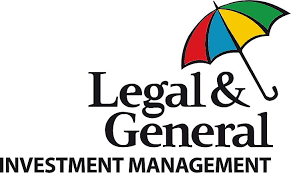Anti-microbial resistance (AMR) poses a systemic risk to markets and an urgent threat to human life. We believe the water sector has an important role to play in averting a crisis, and we recommend policymakers act now.
The history of medicine is a story of humankind’s vast collective effort to preserve life. Modern medicine is built on the cumulative work of countless generations of doctors, nurses and scientists, but significant individuals punctuate the story: Hippocrates, Edward Jenner and Elizabeth Bugie, to name but a few.
Alongside this roster of celebrated names is a second list. They are less famous, but their significance is just as great. In 1942, Ann Miller joined this list of those saved by advances in medicine as she became the first patient to be cured from life-threatening illness by penicillin.1
Today, AMR threatens to take us back to before Ann’s astounding recovery from streptococcal septicaemia: before antibiotics.
The scale of the problem
The ‘silent pandemic’ of AMR is not a theory or a scenario. It’s a reality here and now. In 2019, 1.27 million deaths were directly attributable to bacterial AMR2, a figure that could rise to as much as 10 million per year by 2050 if no mitigating measures are taken.3
As investors that seek to mitigate the impact of systemic risks on our clients’ assets, we’re also cognisant of the significant financial implications of AMR.
The World Bank estimates that AMR could result in as much as 3.8% loss in global GDP by 2050, causing economic damage commensurate with the 2008 financial crisis.4
Industry focus: the water sector
The water sector is a critical pathway connecting antibiotic pollution to humans, but this linkage is in danger of being missed. Through our engagement with water utility companies, we have learned that the topic of AMR is barely on the industry’s radar.5
Wastewater treatment plants are not currently prepared to remove antimicrobials, including antibiotic residues, from water and waste products, meaning hospital and community waste, agricultural run-off and effluents from antimicrobial manufacturing may all make their way to humans.
Without addressing antimicrobials in the wastewater treatment process, drug pollution in waterways will continue to be a serious health threat.6
Our call for action
While international awareness of AMR is rising and commitments were made at recent G7 meetings7, we believe the scale of action across both the public and private sectors remains insufficient to prevent catastrophic economic and human impacts.
Given the crucial – yet potentially overlooked – role of the water sector in AMR, we are recommending policymakers focus on four key areas:
- Expand and strengthen sectoral coverage to highlight AMR in the environment, specifically when it comes to water and waterways. There needs to be a coordinated effort to highlight the risks that antibiotics in the environment, and especially in our water systems, present to humans and society at large. Water utilities are often overlooked industries when it comes to AMR.
- Integrate AMR risks into sustainable finance, specifically the various pieces of regulation targeted at improving disclosure across the investment chain. LGIM recommends policymakers initially focus on regulation targeted at strengthening corporate disclosures across public and private markets, namely the IFRS International Sustainability Standards Board (ISSB) standards and activity-based classification regulations such as the EU and UK Green Taxonomies, then move to disclosure regulation across the investment chain (similar to the European Union’s Sustainable Finance Disclosure Regulation).
- Build on existing work in line with WHO initiatives, and establish a ‘Global Multi-stakeholder Partnership Platform on AMR’ that creates both an independent accountability mechanism and a focal point to guide countries and stakeholders to effectively tackle risks from AMR. LGIM encourages investors, multilateral organisations (e.g. FAO, UN, OIE, WHO, UNEP, and OECD), and policymakers to actively support and participate in the establishment of the platform.
- Implement robust enforcement mechanisms in cases of significant inaction. LGIM believes governments must strengthen their monitoring and enforcement mechanisms to improve transparency and implementation. We suggest policymakers should consider incentivisation or application of a penalising factor, i.e. an ‘AMR tax’ on those taking no action.
Finally, there is a clear correlation between climate change, infectious diseases and AMR8. As global leaders prepare for COP27, we are recommending that policymakers take a system-level approach, ensuring that policy designed to tackle either climate change or AMR is implemented in an integrated and complementary way.
The COVID-19 pandemic has taught us that a delayed response to an urgent public health crisis has drastic consequences for both human life and financial security.9
AMR has been developing for decades, and without enforceable, globally coordinated policy to tackle the problem we risk sleepwalking into a dark new chapter of medical history.
1. http://academics.wellesley.edu/Chemistry/Chem102/antibiotics/obit-a-miller.html
2. The Lancet. (2022). ‘Global burden of bacterial antimicrobial resistance in 2019: a systematic analysis’. (Global burden of bacterial antimicrobial resistance in 2019: a systematic analysis – The Lancet accessed 11 May 2022).
3. WHO. (2019). ‘No time to Wait: Securing the future from drug-resistant infections’. (no-time-to-wait-securing-the-future-from-drug-resistant-infections-en.pdf (who.int), accessed 11 May 2022).
4. Final Report, Drug Resistant Infections. A threat to Our Economic Future, March 2017, World Bank, p. 17
5. https://www.lgimblog.com/categories/esg-and-long-term-themes/anti-microbial-resistance-engaging-water-utility-companies/
6. WEF_Antimicrobial_Resistance_and_Water_2021.pdf (weforum.org) p 7
7. https://www.gov.uk/government/publications/g7-finance-ministers-statement-on-actions-to-support-antibiotic-development ; https://home.treasury.gov/news/press-releases/jy0797 and https://www.g7germany.de/resource/blob/974430/2042058/5651daa321517b089cdccfaffd1e37a1/2022-05-20-g7-health-ministers-communique-data.pdf
8. https://www.bennettinstitute.cam.ac.uk/blog/antimicrobial-resistance-the-hidden-global-crisis-in-the-shadow-of-climate-change/
9. https://globalcoalitiononaging.com/wp-content/uploads/2021/06/GCOA-AMR-Preparedness-Index_FINAL.pdf p 4

